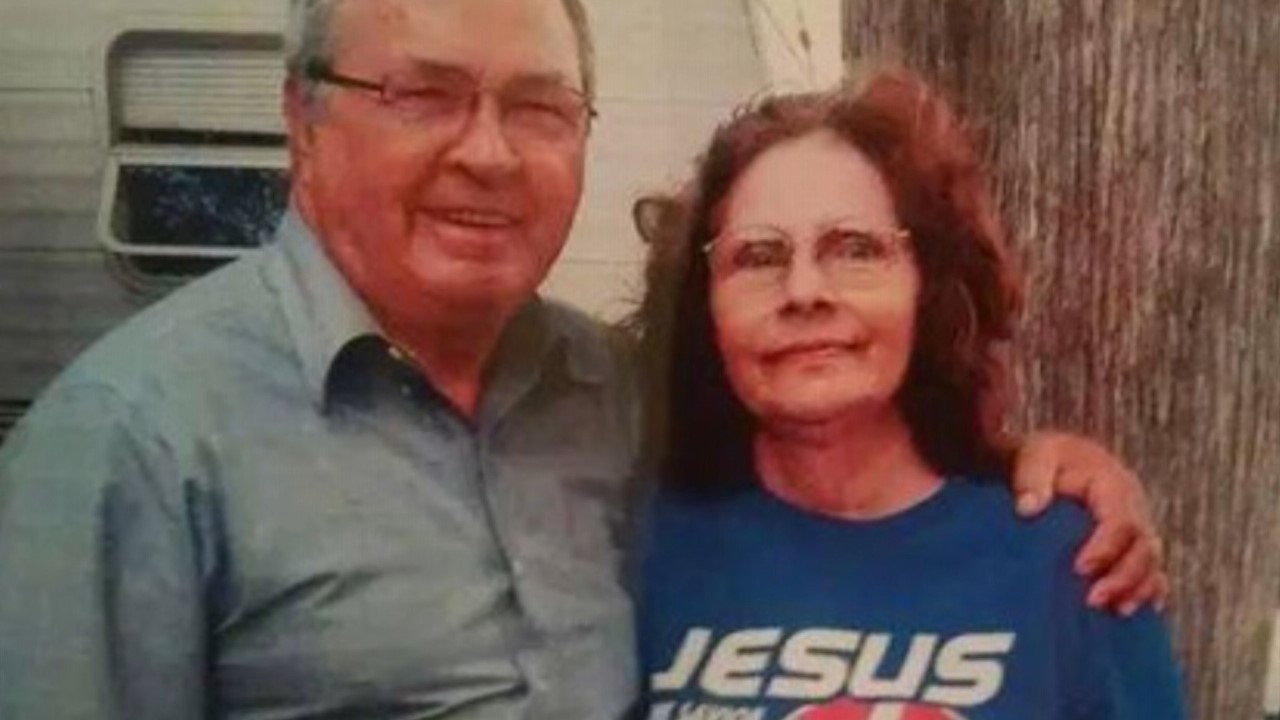Sheila Thomas had the same family doctor for decades. She trusted Dr. Randall Wade with her life.
“If she were here right now, she'd be defending him the whole way,” said her 20-year-old granddaughter, Breann Gonzales.
Wade, 65, is the McKinney doctor accused of prescribing massive amounts of painkillers to people who didn’t need them. An indictment links him to the overdose death of one patient. Investigators are looking into the overdose deaths of least seven others. He remains in federal custody and has surrendered his medical license.
Thomas' family insists Sheila’s suicide had everything to do with her doctor. The family has been contacted by the DEA.
“He was known as the candyman in this area,” Gonzales said.
Family members watched helplessly as Thomas became addicted to Dr. Wade’s drugs. She slept a lot. She seemed strung out.
At 72 years old, Thomas took her life in the front room of her Princeton home. That was two years ago.
“She was gone already,” Gonzales said. “My nanny, the one I had grown up with, was gone months before this happened.”
Weeks after her grandmother's death, Gonzales filed a complaint with the Texas Medical Board. Months went by before an investigator called. She'd get the occasional letter saying the case was "active."
The family still doesn’t know the outcome. They are frustrated with the board, saying they seem more interested in protecting the doctor than they are the patients.
Last week, the board’s president and top staff came under sharp questioning from legislators about their oversight of doctors during an appearance before the Texas Sunset Commission.
"We're compliant driven,” Dr. Michael Arambula, the board’s president, told legislators. “We're not out in the state like Big Brother. ...Monitoring prescribing habits absent a complaint is foreign to us."
Scott Freshour, the board’s interim executive director, acknowledged that pill mills often come to light “after there’s been a couple of overdose deaths.” He added that it was not a “fail proof system by any stretch.”
Freshour said the state’s 140 registered pain management clinics aren't the problem. It's those that are not attached to places that are registered.
“They're family practice. They're general wellness,” Freshour said. “They are almost any moniker other than pain because pain will throw up a red flag.”
And it’s those doctors that are the most likely to prescribe the drugs most abused on the streets.
The majority of the state’s top 300 prescribers of controlled substances were not affiliated with pain management clinics, the Sunset report found. They also were more likely to prescribe the so-called “Houston cocktail” – hydrocodone, Xanax and Soma (muscle relaxers.)
"This is beyond medicine,” Arambula said. “It's almost like a criminal operation.”
Legislators on the Sunset panel told the board that it’s clear that the board’s complaint-driven approach isn’t working.
“More people in this country died from opioid overdoses than from heroin and cocaine combined, so clearly legal opioids – the kind that are prescribed by doctors in Texas today – are killing people,” State Sen. Van Taylor said. “This is an epidemic problem.”
Taylor, who presents most of Collin County, serves as vice-chair of the commission. He was the most vocal member of the commission, calling for a sea change in the way that the board does its job.
“It is a crisis that truly has snuck up on us,” Taylor said. “Five years ago, it really wasn’t much of an issue. Today, it clearly is a very big issue.”
Consider Dr. Wade’s case.
He wasn’t registered to run a pain management clinic, yet he ranked No. 3 out of 10 surrounding counties in hydrocodone prescriptions and No. 1 in Collin County for 2015, according to court records.
He also tended to prescribe the highest dosage available of hydrocodone, as he did in the case of Thomas. As a family doctor, his prescribing history was far outside the norm, DEA officials have testified in court.
Sharon Miller, Gonzales’ aunt and Thomas’ daughter, said she talked to Wade. She told him how worried she was about the cocktail of powerful drugs he was prescribing her mother.
“He said, 'If you care about her so much, why don’t you come and take care of her?,'” said Miller, who lives in the Houston area.
His clinic was not inspected because it was not registered.
Taylor and other legislators want to give the board explicit authority to proactively inspect unlicensed pain management operations, such as Wade’s.
The commission’s report also recommended the board be ordered to use prescription monitoring data to monitor the prescribing patterns of its licensees. That way, they could better determine which ones pose a greater risk to public safety.
Still, State Sen. Charles Schwertner, who is a doctor, voiced concern that the board was being pushed into becoming more of a police agency than a regulatory agency.
“I would beg everyone to give some thought to how much policing we want our regulatory agencies to do,” he said.
The state recently overhauled the Prescription Monitoring Program, moving it from the Texas Department of Public Safety to the Texas Pharmacy Board. The state is also expanding who is required to participate in it to include veterinarians and dentists and other types of medical professionals.
“It’s helping the dispenser – the pharmacy – say, ‘Wait a minute, you just filled this prescription an hour ago at the CVS down the street,’” Taylor said. “That’s a big problem. The dispensers don’t have the tools in their toolbox to figure out where the problem is.”
The nursing board adopted a rule this month mandating that its advanced practice registered nurses use the prescription monitoring system before prescribing opioids and other types of drugs that are the most typically abused.
The medical board is moving in a similar direction to make it a requirement as suggested by the Sunset Commission. Currently, the board requires its licensees treating patients with chronic pain to consider checking the PMP.
In Wade’s case, he came under investigation by the board after they received a complaint.
That resulted in the board finding last summer that he was running an unregistered clinic. Even so, he kept his license and his ability to prescribe powerful medications.
The medical board simply entered into an agreement with him telling him to stop doing what he was doing and to send his chronic pain patients elsewhere.
DEA officials say Wade kept right on as before until he was arrested in October in the parking lot of his McKinney office.
“It’s not just numbers. It’s people and lives,” Taylor said. “The system we have in place right now is not only not working, it’s failing and it’s continuing to fail at a rapid rate and we’ve got to totally change our game. And that’s what I’m passionate about.”
Prescription records from the final year of her life show Thomas routinely filled prescriptions for large amounts of hydrocodone and alprozolam, better known as Xanax. The final time was 14 days before her death.
“They’re giving people license to kill people,” Gonzales said. “No grandmother should be prescribed an amount that could put down a horse.”
Her autopsy showed she had the drugs in her system. Thomas left a suicide note for her husband.
“The pain all over my body hurts so bad I can’t take it,” the note read.
She mentioned Dr. Wade in that suicide note. True to form, she asked that her family not blame her doctor.
“Dr. Wade has tried to make my life bearable,” she wrote. “And he is in no way to blame.”
Miller and Gonzales pray that no other family goes through what they’ve suffered.
“He stole her life with a professional license, and that’s different,” Miller says.
Facts about the Texas Medical Board
The Texas Medical Board oversees 132,000 licensees. It has 31 investigators for the entire state. They are all nurses and commissioned peace officers.
In 2015, Texas patients filled 38.6 million controlled substance prescriptions.
Last fiscal year, the board conducted 133 investigations related to related to nontherapeutic prescribing and potential pill mill activity. This fiscal year, the board conducted about 150 in fiscal year 2016.
The board currently has 11 active investigations of pill mill activity.
Since 2015, the board has issued 39 orders removing a physician’s ability to prescribe controlled substances. There have been 15 voluntary surrenders related to nontherapeutic prescribing.


